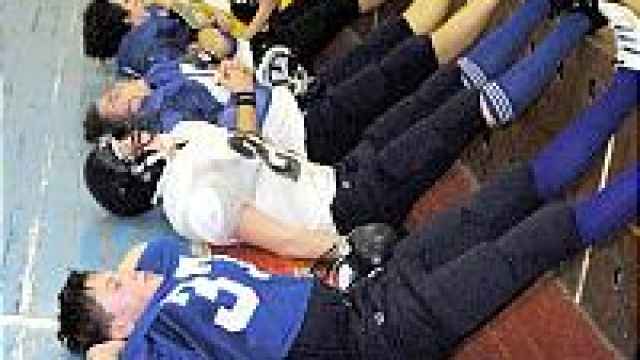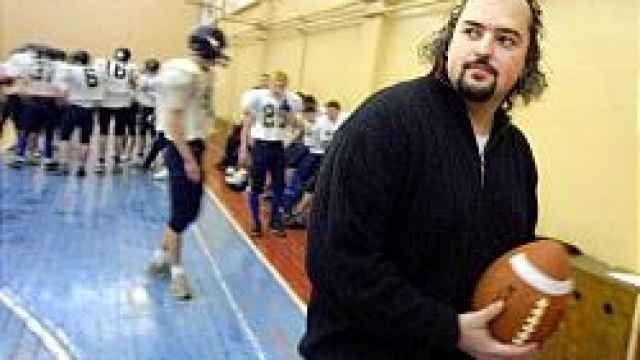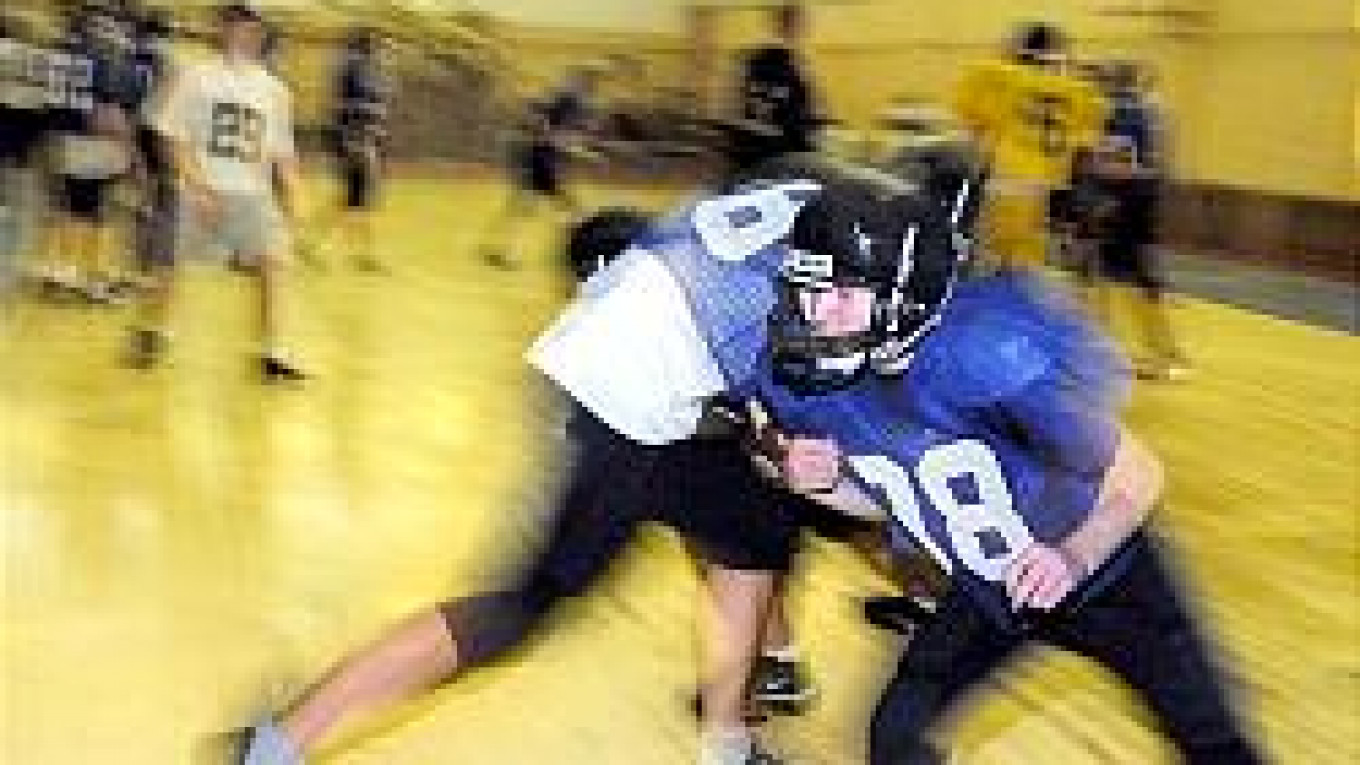The football fluttered in the air for what seemed like forever. When it returned to earth, it was into the arms of a Russian wide receiver. Touchdown.
This wasn't the Super Bowl. But for a small group of Russians, it felt like it -- the country's first championship in the game of American football. Moments later, the team embraced the European Junior Championship trophy, having beaten Germany, the recognized ruler of American football on the European continent
The Germans have been playing the game since the 1950s, when American GIs tossed around the pigskin during downtime on the Marshall Plan. But Russia?
There was one man on the sidelines that night in Glasgow who couldn't express surprise. His name was Harry Gamble, a former National Football League executive who knew good football when he saw it.
In the mid-1990s, when the former president of the Philadelphia Eagles was working at NFL headquarters, Gamble received a call from a college football coach who had just returned from Russia. The NFL had recently established a professional developmental league in Europe, and Gamble's contact suggested that Russia was wide open for similar football expansion.
There was a beginner's league, Children's League of American Football, or CLAF, already up and running in Moscow. There were roughly 70 players on a handful of teams. But when Gamble visited practices in 1994, he saw a ragtag group of kids running drills in beat-up old equipment. They needed a hand, though there was a certain charm.
"I'd hear them checking off and giving signals in Russian," Gamble says. "The potential was incredible."
 Mike Solovyanov / MT Junior football players lying down all in a row and stretching their calves against the wall to warm down after a practice session. | |
Soon after, Gamble and the NFL invited CLAF officials to league headquarters in New York in order to discuss establishing a relationship. The league provided the CLAF with instructional videotapes and surplus equipment. Soon afterward, the NFL arranged for a Russian sportscaster to broadcast the Super Bowl for an audience back home--a practice that continues today.
In 1995, Gamble traveled to Moscow with a team from America's premier youth league, Pop Warner, for a series of exhibitions. He also brought a group of coaches from Allegheny College in Pennsylvania, who helped train Russian players and coaches. Gamble has traveled to Moscow with the diplomatic delegation every summer since then, fostering Russia's interest in football. "The Russians learned to love it and play it and play it very well," Gamble said.
The CLAF now numbers more than 1,000 boys, aged 10 to 19, who compete on 22 teams. The majority of the teams are located in and around Moscow, and several other clubs have sprung up in Astrakhan, Chelyabinsk and Volgograd.
The program has grown quickly, bolstered in part by mounting success in international competition. And it doesn't hurt that over the past several years, sponsors have regularly flown Russian players to the United States to play teams in Florida, Pennsylvania and Wisconsin. In December, CLAF players traveled to Orlando, Florida, where they won an exhibition game against a Pop Warner team.
Yevgeny Chekhov, 18, is one Russian player who quickly caught the bug. He played hockey and soccer growing up, and he knew almost nothing about the strange sport played by behemoths across the Atlantic. But when a friend brought him to an American football practice in 1996, Chekhov was instantly hooked.
Everything was new and different. Chekhov says he was intrigued by the unusual uniforms and the oddly shaped ball. "I think the exoticism of the sport is the main reason people are attracted to it," he says.
 Mike Solovyanov / MT Vasily Dobryakov directs the rapidly growing Children's League of American Football. | |
Chekhov stuck with the sport immediately, excelling at every level inside the Russian system. Now he is counted among the top players in the country and one of the most promising young players in all of Europe. During Russia's run to the junior title, Chekhov rushed for 417 yards and six touchdowns in only three games--a performance that earned him tournament MVP honors.
Russian football on the whole has adhered to a steady upward trajectory. In 1998, in its first appearance in the biannual European Junior Championship, Russia placed third. The next time around, in 2000, the team finished second, losing the title game to Germany. When Russia won the junior championship last summer, the team finally received some overdue recognition.
Moscow Mayor Yury Luzhkov invited the players to tea, where he bestowed on them the newly created title of Master Sportsmen of American Football. Soon after, Russian sponsors such as Aeroflot and the United Russia political party began donating money to CLAF, which until recently was still practicing in Gamble's hand-me-downs.
Visa difficulties have prevented Chekhov and other Russian football players from accepting various playing opportunities in the United States. But American football's development continues unabated here in Russia.
Chekhov plays with an adult team, the Moscow Patriots, which was created in 1995 by former CLAF players. Though he harbors hopes of one day making it to a professional level, Chekhov continues to get a thrill from just taking the field.
"Truthfully, now I would really like to just play," says Chekhov. "Anything else is another question."
A Message from The Moscow Times:
Dear readers,
We are facing unprecedented challenges. Russia's Prosecutor General's Office has designated The Moscow Times as an "undesirable" organization, criminalizing our work and putting our staff at risk of prosecution. This follows our earlier unjust labeling as a "foreign agent."
These actions are direct attempts to silence independent journalism in Russia. The authorities claim our work "discredits the decisions of the Russian leadership." We see things differently: we strive to provide accurate, unbiased reporting on Russia.
We, the journalists of The Moscow Times, refuse to be silenced. But to continue our work, we need your help.
Your support, no matter how small, makes a world of difference. If you can, please support us monthly starting from just $2. It's quick to set up, and every contribution makes a significant impact.
By supporting The Moscow Times, you're defending open, independent journalism in the face of repression. Thank you for standing with us.
Remind me later.


